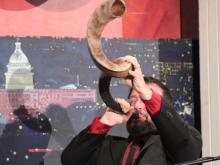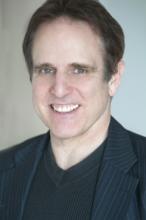Rosh Hashanah

There is no guarantee of divine reward for our goodness, nor threat of eternal punishment for our misdeeds. And yet, we are instructed each year, to stop the busyness of our lives, contemplate our own mortality, and make concrete changes based on our conclusions. One might wonder, why bother?

Happy 5775! At sundown on Sept. 24, Jews around the world will turn the page on the Jewish calendar to begin the new year, Rosh Hashanah. What starts with a feast at home will end 10 days later with a fast in the synagogue on Yom Kippur, the Day of Atonement. This time is referred to as “The Days of Awe” as Jews move between repentance and forgiveness, reflection and renewal.
Here’s everything goyim need to know about the High Holy Days so they can holler “L’shanah tovah!” — or “Happy New Year!” — without looking like a shmendrick.
Q: What do Jews celebrate on Rosh Hashanah and Yom Kippur?
A: The new year is celebrated with family and friends, but Jews are also expected to think about the meaning and direction of their lives. How could they have been better Jews? Better human beings? That comes full circle on Yom Kippur, when Jews fast for a whole day and reflect on their faults and the ways they have wronged people throughout the year. It is a holiday for making amends, for seeking and giving forgiveness.
Q: Well, ain’t that a party? Sign me up. KIDDING!

If you’re Jewish, it’s the time of year to do some serious soul-searching.
On Rosh Hashanah, the Jewish new year that begins at sundown on Sept. 24, Jews ask how they could have lived up to their better selves during the previous year, and for forgiveness from God and those they have wronged.
And while they’re not required to make New Year’s resolutions, a lot of Jews do anyway.
“Mine usually revolve around my mother,” said Debbie Sann, a Washington, D.C., mother of two. “I ask God to forgive me for not being a better daughter, and then I resolve to be a better daughter and I say I will call my mother at least once a week.”
Sann is typical of many Jews who make resolutions around Rosh Hashanah — nobody ever discussed the idea with her, or taught it to her in Hebrew school, but she started the practice because it just felt right. In her 20s, walking home from synagogue, she made her first resolution, and has been doing so ever since.
To some — and not always the most traditional of Jews — the practice seems a bit un-Jewish, a little too reminiscent of the quickly abandoned resolutions that spur couch potatoes to dig out their workout gear and join a gym in early January.
But like many Jews who make Rosh Hashanah resolutions, Sann also makes resolutions on Jan. 1. Those are different — she resolves to keep a more organized house, or to work harder. But the ones she makes during the Jewish High Holy Days “are about being a better person,” she said.

The weeks leading up to the Jewish High Holy Days are supposed to be marked by self-questioning: What failings must I atone for, and to whom must I apologize?
A group of artists, writers and animators are hoping a cartoon goat may help.
They call it the eScapegoat, and it’s supposed to approximate the original scapegoat, described in Leviticus as an important player in the atonement ritual of the ancient Israelites, who symbolically placed their sins upon the animal and sent it into the wilderness.